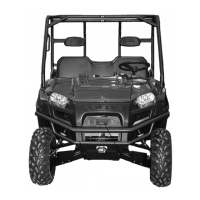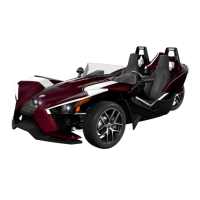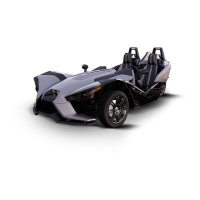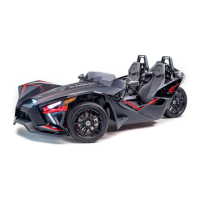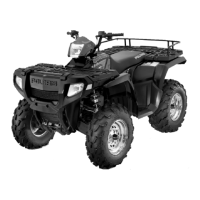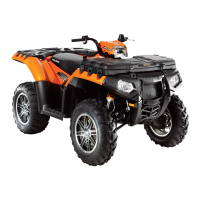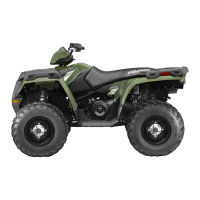ELECTRICAL
10.17
FLYWHEEL IDENTIFICATION
Polaris
Production
Date
Part Number
Timing Marks
Polaris
Part Number
Production
Date
Ducati Flywheel
Kokusan Flywheel
ATV Built On or After February 20, 2003
ATV Built Before February 20, 2003
Flywheel Identificatio n Stamp Lo catio n
The flywheel can be identified by the stamp mark in location A. Refer to “I.D.” location in chart below. Do not
use the cast mark to determine flywheel application.
Engine
Application
Cast Stamp Comment
Ducati Flywheel EH059OLE23, EH068OLE13 4060152 8_ 300 W
Kokusan Flywheel EH059OLE24, EH068OLE15 4010899 8_ 300 W
600/700 -- DC / CDI IGNITION
The Sportsman 600/700 has incorporated into it’s
design a DC/ CDI ignition system.
Some of the advantages of DC ignition are:
G Stronger, more consistent spark at
low rpm for better performance
G Easier starts
G Simpler component design for ease
trouble shooting and maintenance
Operation Overview:
The DC/CDI system relies on battery power for ignition.
Instead of generating DC voltage via magnetic
induction, a 12 volt DC current is supplied directly to the
CDI unit from the battery at the CDI, 12 volt DC current
charges an internal capacitor to build up the initial
ignition charge. A small A/C signal from the Trigger
(Pulse) coil closes a thyristor (located in the CDI) at
a point pre--determined in the crankshaft rotation by
magnets on the flywheel’s outer diameter. This signal
releases the electrical charge which saturates the coil
for ignition. DC/CDI systems have the ability to ignite
with as little as 6 volts of power.
Maximum Timing
NOTE:
DC/CDI systems and compo-
nents are not interchangeable
with any other system.

